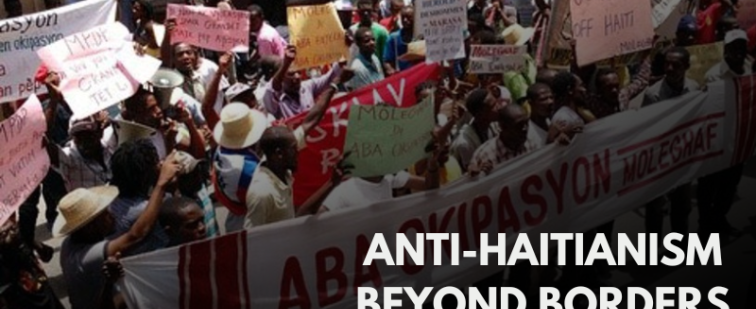Home
A long hunger strike by five Mapuche political prisoners in Chile, sustained by a significant amount of solidarity, seems to be evidence of the deepening of a people’s long struggle for the recovery of lands and control over territory.
“We denounce that Chile is the only country in Latin America where members of an indigenous group fighting for its rights are persecuted and jailed ...”
Editor's Note: With solidarity from landless and campesino movements, indigenous Tupinikim and Guarani communities in the Brazilian state of Espírito Santo have successfully reclaimed their land from Aracruz Celulose S.A., a mammoth multinational cellulose company that illegally appropriated it in the 1970s. A NACLA investigation supported by the Samuel Chavkin Investigative Journalism Fund finds that the growing unity of various factions of rural civil society, and their increasing militancy—especially as manifested in the tactic of nonviolent occupations—have greatly boosted the indigenous struggle.
Wal-Mart's aggressive efforts to keep labor unions out of stores worldwide have come under fire across the hemisphere. Workers report how the retail chain systematically violates international labor laws protecting workers' rights to free association and union organizing. As the world's largest private employer, Wal-Mart has set a precedent for bad working conditions for employees in the United States and abroad.
In recent years, grassroots media have been critical to social uprisings throughout Latin America. The short-lived coup against Venezuela’s Hugo Chávez would have turned out quite differently if not for community outlets breaking the information blockade imposed by anti-government corporate media. Grassroots radio has served as the central nervous system of Bolivia’s massive rural-urban uprisings, and Ecuador’s call-in radio station Radio Luna was instrumental in the overthrow of former president Lucio Gutiérrez. Even in the United States, Latino media have been key to filling the streets. But the use of media in the 2006 uprising in Oaxaca, Mexico, stands apart. There, activists didn’t just use the media; they expropriated them.
Naomi Klein is a Canadian journalist and regular contributor to The Nation and the London Guardian. Beginning with No Logo: Taking Aim at the Brand Bullies (1999), Klein’s work has explored the two major forces that have shaped the post–Cold War world: the extension of radical free-market capitalism and, after 9/11, the resurgence of imperial militarism. More than just investigating the excesses, abuses, and popular resistances to neoliberalism and war, Klein’s journalism consistently links them, exploring how the corporate globalism of the Clinton years flowed seamlessly into the neoconservatives’ preemptive warfare doctrine. Latin America was the first region where neoliberalism was imposed and the first to produce a sustained resistance movement to it.
In the first Congressional hearing held on the controversial case of violent Cuban exile Luis Posada Carriles, the House Foreign Affairs Subcommittee on International Organizations, Human Rights, and Oversight invited National Security Archive Senior Analyst Peter Kornbluh to testify on formerly top secret CIA and FBI intelligence reports linking Posada to the October 6, 1976 bombing of a Cuban civilian airliner.
When the CIA declassified its “family jewels” in June, a few small pearls about the agency’s programs in Latin America tumbled into view. The secret documents were compiled in 1973 on orders from then CIA director James Schlesinger, who, in the interest of controlling the damage inflicted on the CIA by the Watergate scandal, commanded his personnel to identify any CIA activities that might be construed as illegal. The compilation of reports that flowed to Schlesinger’s office became known as the family jewels. Henry Kissinger called it “the horrors book.”
The UN Security Council voted last October 15 to extend the mandate of the UN Stabilization Mission in Haiti (Minustah) for another year. The next day, Brazil’s foreign relation’s office released a statement saying, “The Brazilian government is satisfied with the decision.” The Brazilian army is in charge of coordinating the close to 9,000-strong Minustah forces. But there is little debate in Brazil about the country’s role in the occupation of Haiti and even less discussion about charges of human rights abuses against the UN troops.
The protagonists of tomorrow are people who are off-line, somehow off the grid, "unsophisticated" or simply unimpressed by the general spectacle of information-overload and conspicuous consumption.
Several documentaries have appeared since Evo Morales was elected president of Bolivia, some of which are closely linked to political developments in that country. The Devil’s Miner, by Kief Davidson and Richard Ladkani, is instead a social document that avoids overt political comment. Premiered in 2005, it was finally shown in La Paz in October 2006 and welcomed as providing an outside viewpoint invaluable in the comprehension of national reality. One critic saw it as “essential in order to understand the world of the Potosí mines.”












